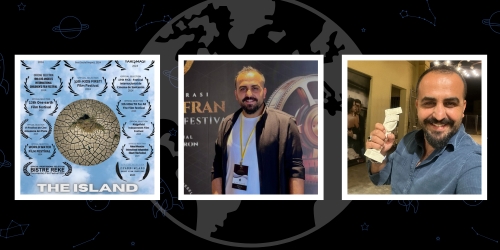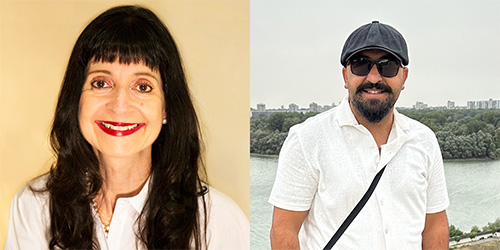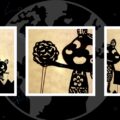This month on Planet Classroom, audiences can screen The Island, directed by Mahmut Taş. This poignant short film, curated for Planet Classroom by the KIDS FIRST! Film Festival offers a heart-wrenching glimpse into the devastating effects of climate change through the innocent yet urgent eyes of young Ada.
Written and directed by Mahmut Taş, The Island immerses viewers in the stark reality of a once-thriving village now reduced to barren wasteland due to drought. Using a found-footage style, the film delivers an emotionally powerful and visually arresting experience, reminding audiences of the profound human toll of climate change.
The Global Search for Education is pleased to welcome Mahmut Taş.
Mahmut, what inspired you to tell The Island’s story from a child’s perspective?
Ada is my own daughter, and her real name is Ada, which means “The Island” in English. I believe that explaining something from a child’s perspective is much more effective. When viewers see a child taking action against the climate crisis, they become more aware. They think, “If a child is showing us this, then we must be more responsible.”
How did you create such an immersive found-footage experience for audiences?
I wanted to capture a slightly experimental and documentary-like atmosphere. I let my daughter hold the camera and tell the story of her village in her own way. By keeping the dialogue natural and true to a child’s perspective, I ensured the film remained authentic. Audiences have responded very positively to this approach—it was a unique and different experience for them.
What message do you hope viewers take away regarding climate change’s impact on vulnerable communities?
Climate change is not an unsolvable problem, and our world is not beyond saving. In the film, a child shows us that we still have time to take action. However, if we continue to ignore the issue, things will only worsen, and climate migration will become even more widespread. We must all do something before it is too late.
How did you balance storytelling and advocacy while making this film?
This is always a delicate balance. It can be difficult to convey a message effectively in a film without making it feel forced. I felt more comfortable presenting this story through a child’s perspective. Ada does not use big words or complex arguments—she simply explains her world as she sees it. That honesty resonates deeply with adult audiences and makes them reflect on the issue in a more personal way.
Thank you, Mahmut!
C. M. Rubin with Mahmut Taş
Don’t miss The Island, now streaming on the Planet Classroom Network. This film is curated by the KIDS FIRST! Film Festival for Planet Classroom.







Recent Comments